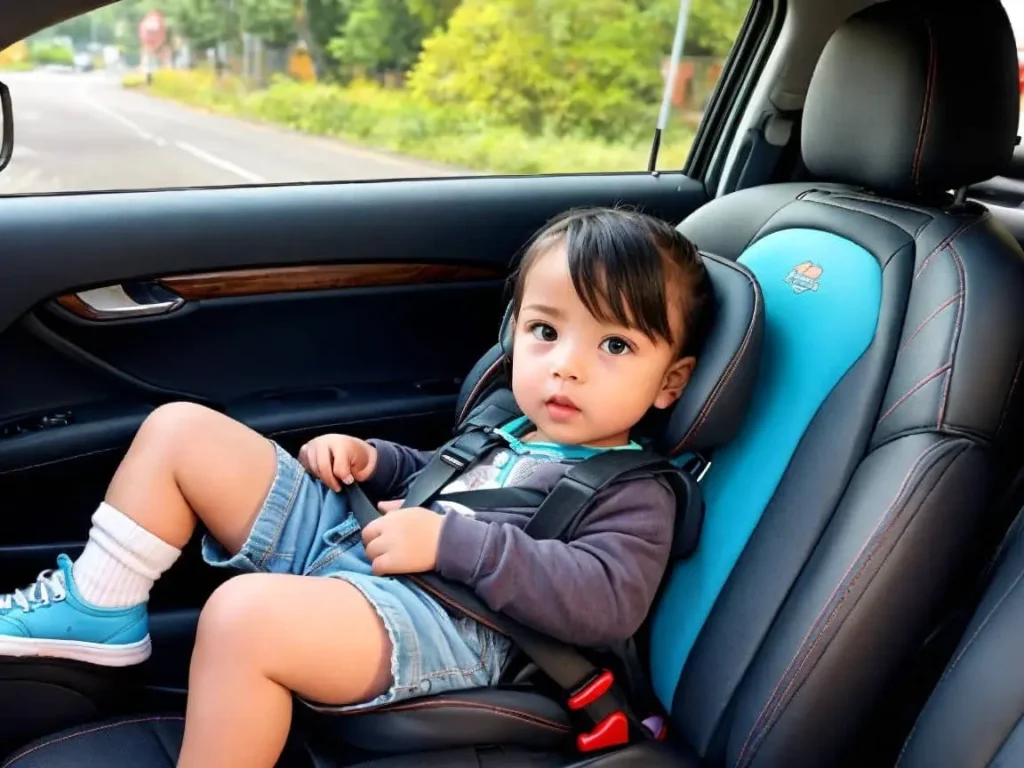
When it comes to ensuring the safety of your child while driving, understanding the child seat rules and regulations is crucial. Newark, like many other cities, has specific laws in place to protect young passengers. This article aims to provide comprehensive information on child seat rules in Newark, helping you stay compliant and keep your child safe.
Importance of Child Seats
Motor vehicle crashes are a leading cause of injury and death for children. Proper use of child seats can significantly reduce the risk of injury or death. Child seats are designed to offer maximum protection by restraining the child and distributing crash forces across the strongest parts of their body.
New Jersey Child Seat Laws
In Newark, the child seat laws follow the guidelines set by the state of New Jersey. Violating New Jersey’s car seat law can result in fines of $10 to $25. Here are the key points:
- Rear-Facing Car Seats:
- Children under the age of 2 and weighing less than 30 pounds must be secured in a rear-facing car seat equipped with a five-point harness.
- Forward-Facing Car Seats:
- Once children outgrow the rear-facing seat, they should transition to a forward-facing car seat with a five-point harness. This is typically recommended for children aged 2-4, weighing between 30-40 pounds.
- Booster Seats:
- Children aged 4 to 8, and weighing up to 80 pounds or until they are 4 feet 9 inches tall, should use a booster seat. This ensures that the vehicle’s seat belt fits correctly over the child’s shoulder and lap.
- Seat Belts:
- Children aged 8 and older, or those who have outgrown the booster seat, must use the vehicle’s seat belt. It is important that the lap belt lies across the upper thighs and the shoulder belt across the chest, not the neck or face.
Installation and Usage Tips
- Correct Installation:
- Ensure the car seat is installed correctly. Refer to the car seat manual and your vehicle’s owner manual. You can also get help from local fire departments or child passenger safety technicians.
- Proper Positioning:
- The safest position for a child seat is the back seat of the vehicle. Avoid placing child seats in the front passenger seat, especially if the vehicle is equipped with airbags.
- Harness Adjustment:
- Make sure the harness fits snugly against your child. The chest clip should be at armpit level, and you should not be able to pinch any excess webbing at the shoulders.
- Regular Inspections:
- Regularly check the condition of the child seat. Ensure there are no cracks or defects, and that it has not expired. Car seats typically have a six-year lifespan from the date of manufacture.
Penalties for Non-Compliance
Non-compliance with child seat laws in Newark can result in fines and points on your driver’s license. Fines can range from $50 to $75 for a first offense, and subsequent offenses may carry higher penalties. Ensuring proper usage of child seats not only avoids fines but also protects your child’s life.
Exemptions
The law does not exempt parents who claim to be following the car seat manufacturer’s instructions.
Exceptions and Special Considerations
- Medical Exceptions:
- Children with certain medical conditions may be exempt from the standard child seat laws, but this requires documentation from a medical professional.
- Taxis and Ride-Sharing Services:
- While private vehicles are strictly regulated, taxis and ride-sharing services like Uber and Lyft may have different requirements. It is generally advisable to carry your own child seat when using these services to ensure safety and compliance.
Resources for Parents
- Inspection Stations:
- Many local fire departments and police stations offer free car seat inspections. These professionals can assist with installation and provide safety tips.
- Online Resources:
- Websites like the National Highway Traffic Safety Administration (NHTSA) offer detailed guidelines and instructional videos on child seat installation and usage.
- Community Programs:
- Participate in community programs that provide education and resources for child passenger safety. Some programs may even offer free or discounted car seats to families in need.
Conclusion
Ensuring your child’s safety on the road starts with understanding and adhering to the child seat rules in Newark. By following these guidelines, you can significantly reduce the risk of injury and provide the safest possible travel environment for your young passengers. Stay informed, stay compliant, and prioritize your child’s safety every time you hit the road.
